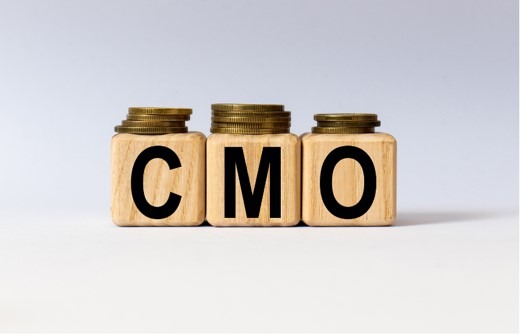Excitement around the next generation of internet connectivity is mounting, as it promises to revolutionise the way we interact with the world. The question for communications professionals is what will be the impact of 5G on digital marketing?
More bandwidth, new experiences
5G vows to dramatically improve speed, capacity, and latency of internet connections thanks to more available bandwidth. It will be possible to transmit more data, from more devices, instantly, and this will enable the commercialisation of products and services that up until this point have been in the realm of science fiction, such as driverless cars and holograms. Connected devices will become ubiquitous, making the Internet of Things (IoT) and smart cities a reality. AI, robotics and virtual reality will finally be deployed to their full potential, disrupting many industries, from healthcare to B2B technology and of course, PR and marketing.
Ready or not, the 5G revolution is coming
With these premises, it’s easy to understand why 5G is on everyone lips. Our proprietary media monitoring and analysis system – the Listening Station™ – indicates that articles on the topic published in the UK have doubled in the past 12 months and Twitter conversations in this country have reached a total of 114,000 mentions just in the last 90 days.
However, sentiment about the new technology is mixed. Businesses that don’t embrace this new era risk being left behind, but preparing for the revolution is costly and there is uncertainty around how quickly they will be able to reap the benefits. Consumers are enticed by the new mobile interactive experiences, but will the promises be maintained and can they trust the network with their personal data?
Despite the question marks surrounding this new technology, I feel communications and marketing departments should look optimistically at the future, as 5G will open up new exciting opportunities to reach and engage their audiences. Here are just some of the many ways in which 5G will impact digital marketing.
More immersive experiences
Brands have experimented with Augmented Reality (AR) and Virtual Reality (VR) for some time, but the faster connection will unleash the full potential of these technologies that rely on smooth, flawless execution to maintain the suspension of disbelief to truly dazzle consumers. 5G will give brands the confidence to invest in AR and VR knowing that they will be able to offer memorable experiences at any time, and in any environment, from crowded stadiums to remote locations and on the daily commute. Expect retail brands to augment the in-store experience with eye-popping offers, and I am looking forward to working on diseases awareness campaigns that will bring to life patients’ stories with fully immersive digital experiences.
Personalised content
The volume and the sources of personal data uploaded online will increase exponentially in the coming years. Online behaviours, social media interests, conversations with Alexa, health data from wearables, and food choices from your smart fridge will provide a much more accurate picture of our preferences that marketeers will leverage to place incredibly targeted ads in real-time. Of course, people’s concerns towards privacy are increasing, but I believe it’s in everyone interest to match the right messages to the right audiences and be exposed to messages that really matter to us.
Video proliferation
More speed and near-zero latency are a dream come true for campaigns that feature video content at their core. Marketeers will be able to offer beautiful HD videos that load instantly, resulting in improved view-through rates for the brands and a less obtrusive feeling for online viewers. User-generated content will proliferate as it becomes easier to shoot videos on mobile devices, enhance them with professional effects or funny filters and upload them in a wink for everyone to watch. It will be exciting to see how video-based platforms such as YouTube and TikTok will evolve, what kind of collaborations will be possible with influencers and what the next generation of social networks will look like.
Voice activation
With voice activated devices and AI assistants becoming ubiquitous, brands will have to literally find their own ‘voice’. For communication departments this is another stimulating challenge to tackle. Alexa skills and podcasts are already popular, but can we craft experiences that are more interactive, immersive and useful for consumers, patients and professionals? 5G connectivity will help us make it frictionless, but it’s the quality of the creative ideas that will determine the success of these comms initiatives.
Centrality of Mobile devices
5G will position mobile devices at the centre of everyone’s life by levelling up the experience with those of TV and computer. Many brands will have to shift their mentality and take a mobile-first approach to every comms project and, for me, gaming is one of the most fascinating aspects of this revolution. On one side in-app ads will become an integral part of the industry, on the other gamification of marketing activities will finally reach its potential thanks to captivating avatars and real-time connections with peers enabled by better phones and connectivity.
There are definitely a great deal of new opportunities to look forward to, but for me the question is whether the digital marketing landscape will change completely because of 5G? I believe that what will continue to matter most for marketers is finding a piercing insight about their audience to drive the digital strategy. The channels and the ways to reach and interact with audiences will evolve, but the importance of a clear plan underpinned by a strong rationale, won’t change because of 5G.
By Federico M.

